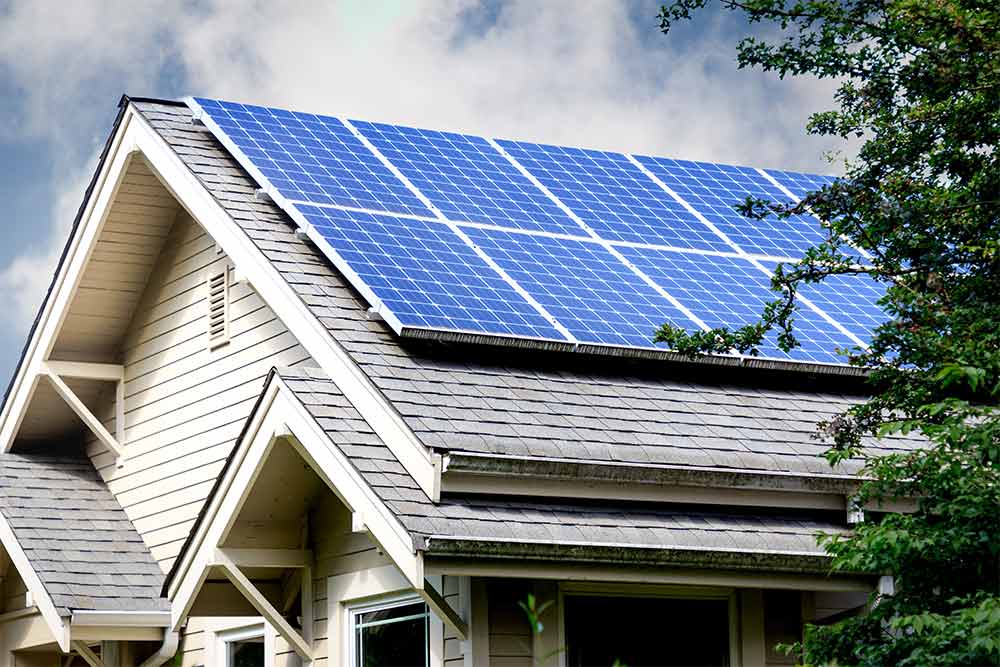Changing Fannie Mae Policy is Necessary for Solar Homes To Be Fairly Valued
Homebuyers and sellers in the real estate industry are beginning to realize the value that solar adds to homes. But Fannie Mae, one of the largest mortgage enterprises, uses a valuation method that lacks sufficient data, making it nearly impossible to fairly value solar homes.
Updating this guidance is critical for keeping solar affordable and encouraging clean energy investments.
How is Solar Valued in a Home?
An appealing reason to install solar on your home is knowing that you will be able to recover some (or all) of the cost of the solar system when you sell your home. But how can you know that ahead of time? The answer is through appraisals.
Real estate appraisers develop professional opinions of a home’s value, called appraisals, that are used whenever the home is bought, sold, or refinanced with a mortgage. When a homeowner owns their solar system, the appraisal shows whether the solar system is commanding a premium – meaning the home has a higher real estate value than it would have without the solar system. Appraisals carry large implications for residential solar development and market transformation.
Approaches to Solar Valuation
There aren’t a lot of homes with homeowner-owned solar systems yet, which means without other homes for comparison it can be challenging to determine the value of a home with solar. Luckily, appraisers have a few different ways to determine the value of a home with an owned solar system:
- Sales Comparison. Appraisers carefully select homes that have sold recently with the same attributes (for instance, number of bedrooms, age of home, and square footage) in the same neighborhood to determine the property’s value. This approach relies on data of other solar homes, which is often not available.
- Income-Generated. Appraisers estimate the value of a property based on the income the property generates – for solar, this would be based on the energy the system generates.
- Cost-Build. Appraisers determine the property’s value based on the cost to build a similar home (considering land and construction expenses plus depreciation).
Fannie Mae: Limiting the Value of Solar Homes
The sales comparison approach is often an impossible option for solar valuation because of the lack of solar home data available. However, one of the largest mortgage enterprises is using this as their only appraisal method, severely crippling the fair valuation of solar homes.
In August 2020, the Federal National Mortgage Association, commonly known as Fannie Mae, required appraisers to use only the sales comparison method when appraising homes with solar panels. Fannie Mae only applies this ruling to solar homes, preventing buyers and sellers from recognizing the value of solar systems.
Fannie Mae’s policy also does not comply with Uniform Standards of Professional Appraisal Practice (USPAP), which requires appraisers to use all applicable method of valuing a property based on the data available. Other mortgage enterprises including Freddie Mac, the Veterans Administration, and the Federal Housing Administration follow USPAP and allow appraisers to use all the valuation approaches when valuing solar installations.

Policy Change Needed for Market Transformation
Fannie Mae must update its policy to allow appraisers to use all approaches to valuesolar installations. Study after study shows that homebuyers place a higher value on homes that have solar installations, and this value must be captured in the homes’ appraisals so homeowners can receive the fair value of their home.
Accurately valuing solar homes has the potential to drive a tremendous increase in residential solar by demonstrating that these improvements can pay for themselves, in part or in whole, through an increase in the home’s resale value.
Learn More
Want to learn more about our work with high-performing homes? Check out our continuing education courses for real estate professionals. Stay up to date with our latest news by subscribing to our newsletter.
Switching to solar energy is good for the environment, but it can also save you money in the long run. To help you get started, Redfin asked us and other experts for some solar energy projects you can take on to power your home. Read Solar Energy Projects and Tips for Your Home to learn where to start!




